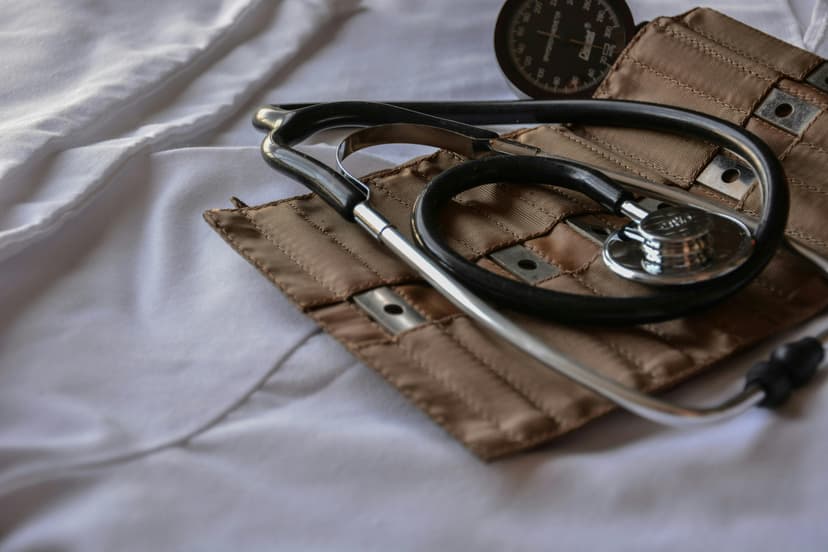The Best Medical School Extracurriculars for Admission
Discover the top extracurricular activities that will make your medical school application stand out.
Posted June 23, 2025

Join a free event
Learn from top coaches and industry experts in live, interactive sessions you can join for free.
Table of Contents
Getting into medical school is competitive, and strong academics alone aren’t enough. Admissions committees look for students who have real experience in healthcare, give back to their communities, and show clear motivation to become doctors. Your activities outside the classroom help paint a full picture of who you are, what you care about, and how you’ve prepared for this path.
The right extracurriculars can make your application stronger and more personal. Whether it’s volunteering in a clinic, leading a student group, or doing hands-on research, these experiences help you develop important skills like communication, leadership, and critical thinking. In this article, I’ll break down the best extracurriculars for medical school and how to make each one count.
5 Best Extracurriculars for Medical School Admission
Medical schools value applicants who have a diverse range of experiences and have shown dedication to their community. Here are some of the most highly regarded extracurricular activities that can strengthen your medical school application:
1. Volunteering at a hospital or clinic
Spending time in a healthcare setting allows you to gain firsthand experience and demonstrate your commitment to helping others. Not only will you learn about the realities of patient care, but you will also develop important skills such as empathy and communication.
When you volunteer at a hospital or clinic, you have the opportunity to interact with patients from various backgrounds and with different medical conditions. This exposure allows you to witness the challenges faced by healthcare professionals and the impact they have on patients' lives. Additionally, volunteering in a healthcare setting can provide you with valuable networking opportunities, allowing you to connect with physicians, nurses, and other healthcare professionals who can serve as mentors or provide letters of recommendation for your medical school application.
Volunteering at a hospital or clinic can give you a deeper understanding of the healthcare system and the various roles within it. You may have the chance to shadow different healthcare professionals, such as doctors, nurses, or medical assistants, and gain insight into their day-to-day responsibilities. This experience can help you solidify your career goals and determine which medical specialty you are most interested in pursuing.
2. Participating in research
Getting involved in scientific research showcases your intellectual curiosity and commitment to advancing medical knowledge. Whether you join a research team or conduct your own independent project, this experience will help you develop critical thinking skills and understand the research process.
Engaging in research as an extracurricular activity demonstrates your ability to think critically, analyze data, and contribute to the scientific community. It allows you to explore your interests in a specific area of medicine and develop a deeper understanding of the scientific principles that underpin medical practice.
Research experiences can range from working in a laboratory, conducting experiments, and analyzing data to participating in clinical trials or literature reviews. By actively participating in research, you can contribute to the advancement of medical knowledge and potentially make discoveries that have a positive impact on patient care.
3. Shadowing a physician
Shadowing allows you to observe healthcare professionals in action and gain insight into the daily life of a doctor. It provides an opportunity to understand different medical specialties and confirm your interest in pursuing a career in medicine.
Shadowing a physician is an invaluable experience for aspiring medical students. It allows you to witness the realities of medical practice, including the interactions between doctors and patients, the decision-making process, and the challenges faced by healthcare professionals.
During your shadowing experience, you may have the opportunity to observe various medical specialties, such as surgery, pediatrics, or internal medicine. This exposure can help you determine which field of medicine aligns with your interests and passions. Additionally, shadowing can provide you with mentorship opportunities, as you may be able to establish relationships with physicians who can guide you throughout your medical school journey.
4. Leadership roles in student organizations
Joining and taking on leadership positions in student organizations such as pre-med clubs or volunteering groups can demonstrate your ability to work collaboratively and lead others. It also shows your dedication to helping your community and organizing impactful events.
Being involved in student organizations not only allows you to contribute to your community but also helps you develop important leadership and teamwork skills. By taking on leadership roles, such as being a club president or event coordinator, you can showcase your ability to organize and manage projects, delegate tasks, and work effectively with a diverse group of individuals.
Student organizations also provide opportunities for personal and professional growth. You can attend workshops, conferences, and seminars related to healthcare and medicine, expanding your knowledge and network. Additionally, being part of a pre-med club or volunteering group can expose you to various volunteering opportunities, allowing you to make a positive impact on the lives of others.
5. Community service
Engaging in community service activities outside of the healthcare field can showcase your commitment to making a positive impact. Whether it's volunteering at a shelter or tutoring disadvantaged students, these experiences highlight your altruism and ability to empathize with others.
Community service activities provide you with the opportunity to give back to your community and make a difference in the lives of others. By engaging in activities such as volunteering at a shelter, organizing fundraisers for charitable organizations, or tutoring disadvantaged students, you demonstrate your compassion, empathy, and commitment to helping those in need.
Participating in community service also allows you to develop important skills such as communication, problem-solving, and cultural competence. Interacting with individuals from diverse backgrounds and facing various challenges can broaden your perspective and enhance your ability to work effectively with people from different walks of life.
How Many Hours Should You Spend on Extracurriculars?
Medical schools don’t have a strict number, but these are typical ranges:
| Activity Type | Recommended Hours |
|---|---|
| Clinical Volunteering | 150–300 hrs |
| Research Experience | 100–300 hrs |
| Physician Shadowing | 30+ hrs |
| Leadership Roles | 100+ hrs |
| Community Service | 100–200 hrs |
Note: Use “extracurricular hours medical school” naturally when talking about these totals.
Find a Way to Balance Academics and Activities
While extracurricular activities are important, it is crucial to maintain a balance between your academic responsibilities and involvement in extracurriculars. Medical schools recognize the importance of academic excellence, so it is essential to prioritize your coursework while still actively engaging in extracurricular activities.
Time management is key to achieving this balance. Be realistic about the number of extracurriculars you can commit to without sacrificing your academic performance. It's better to be deeply involved in a few activities and excel in them, rather than spreading yourself thin across numerous clubs or organizations.
Make use of resources such as academic advisors, study groups, and scheduling tools to optimize your time. By effectively managing your commitments, you will be able to excel academically while gaining valuable experiences through your extracurricular activities.
Strategic Extracurricular Planning
It's important to approach extracurricular planning strategically. Consider how each activity aligns with your personal interests and goals, and choose those that allow you to develop the qualities medical schools value most.
Think about the skills and experiences you want to acquire, as well as how they contribute to your overall narrative as a future healthcare professional. Selecting activities that demonstrate growth and a genuine passion for medicine will strengthen your application and make you a more competitive candidate.
Related topic: How to Build the Best Extracurriculars for College
How Extracurriculars Affect Your Chances of Admission
Extracurricular activities can significantly impact your chances of getting into medical school. Admissions committees look for well-rounded applicants who have demonstrated a commitment to service, leadership, and personal growth.
While exceptional grades and high MCAT scores are essential, extracurricular activities provide a way to showcase your unique strengths and qualities. They give you an opportunity to demonstrate your ability to balance multiple responsibilities and your passion to make a difference in the lives of others.
Remember, it's not just the number of activities that matters, but the depth of your involvement and the impact you have made. Admissions committees are interested in hearing about your experiences, what you have learned, and the skills you have developed along the way.
Show Your Leadership and Service Experience
Many students who get into medical school have shown strong leadership and care for others. Schools look for people who can take the lead and help their communities. If you’ve been a club leader, started a service project, or volunteered at a hospital or clinic, talk about what you learned. Share how you worked with others, solved problems, and made a real difference. When you explain these experiences in your application, focus on what you did and what skills you used, like teamwork, planning, or communication. These stories help show that you’re ready to work in healthcare.
Choose activities that mean something to you. Don’t try to do everything. Pick a few that match your goals and stick with them. These are the best extracurriculars for medical school because they help you grow, and show schools who you really are.
The Bottom Line
Pick at least one activity in each area, clinical, research, service, leadership, and personal projects. Invest enough time to show real commitment and meaningful outcomes. These are the best extracurriculars for medical school admission. When you describe your experiences, focus on what you did and what you learned.
Read these next:
- Med School Application Timeline: Key Dates and Strategies
- How Many Medical Schools Should I Apply To? A Strategic Approach
- Medical School Requirements: What You Need to Get In
- Is Med School Worth It? Weighing the Pros and Cons
Frequently Asked Questions (FAQ)
How many shadowing hours do I need for med school?
- Aim for at least 30 hours. Shadowing multiple doctors in different specialties gives you a better understanding of the medical field.
Do I need research experience to get into medical school?
- Research isn’t required, but it’s helpful, especially for competitive or research-focused schools. Try to get 100–300 hours and contribute to a project if possible.
What counts as clinical experience?
- Clinical experience includes any role where you work around patients or healthcare professionals. Volunteering at hospitals, clinics, or assisting with patient care all count.
Can non-medical volunteering help my application?
- Yes. Volunteering in your community shows you care about helping others and builds skills like empathy, teamwork, and communication.
Browse hundreds of expert coaches
Leland coaches have helped thousands of people achieve their goals. A dedicated mentor can make all the difference.




















